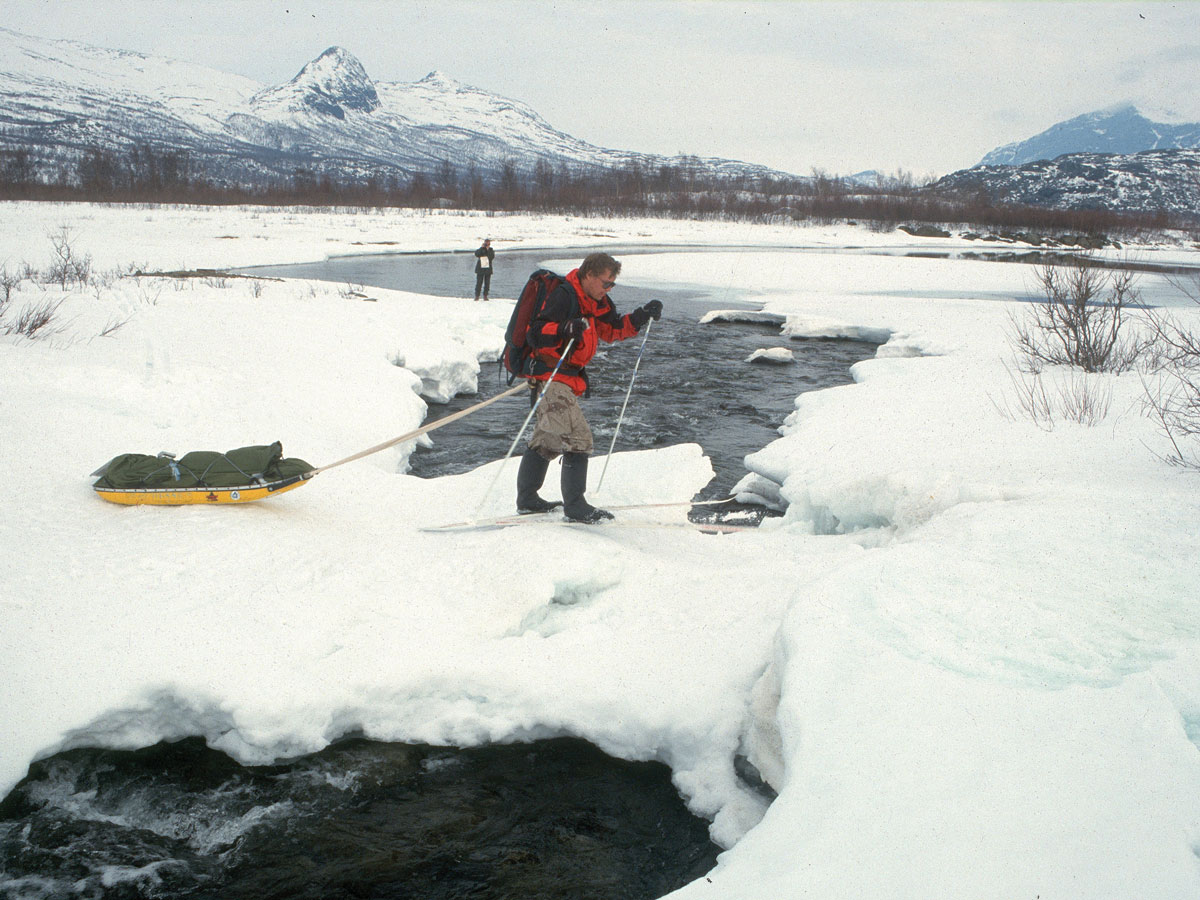Tero Mustonen never set out to be a scientist. His first job after high school was as a wilderness guide, and he spent several years exploring his native country of Finland, as well as Canada and the United States. As a guide immersed in the natural world, he encountered Indigenous Peoples who also lived in close connection with the land: the Sámi in Finland, Native Americans in the United States, and First Nations groups of Canada.
Mustonen soon noticed that these groups, with their extensive environmental knowledge, were often left out of the decisionmaking process when it came to managing the lands they lived on. To draw attention to the value of the environmental knowledge that Indigenous Peoples have of their land and to argue for social justice for marginalized Indigenous communities, Mustonen enrolled in an undergraduate and then a master’s program in international relations at the University of Tampere in Finland.
“I hoped that my work could be one of the pieces to the puzzle whereby the rights and the view of the landscape from the Sámi side could be advanced.”
“At the time, there was this notion of social justice and passion that you can change the world,” Mustonen said. “I hoped that my work could be one of the pieces to the puzzle whereby the rights and the view of the landscape from the Sámi side could be advanced.” But in the 1990s, there was little academic consideration given to how human societies engage with the landscape and ecosystems.
Continuing into his Ph.D. program, Mustonen investigated and documented the deep and rich “endemic” knowledge that three communities—the Kesälahti in Finland and the Iyengra and Lower Kolyma of Sakha-Yakutia in Russia—hold about the environments they live in. In his thesis, Mustonen argued that such endemic knowledge, or Traditional Knowledges, is equally as valid as Western science when it comes to understanding and caring for the environment. “My argument caused a riot in the entire department,” Mustonen said.
But despite being viewed as a disrupter during his studies, Mustonen believes that integrating Western science and Traditional Knowledges is critical because both provide value in complementary ways. For example, he points out that Indigenous and local communities don’t have solutions to problems such as radioactive, acidic, or biochemical pollution, whereas Western science can help address these issues. Alternatively, Indigenous communities have centuries of experience in how to live sustainably in their natural environments and protect food and water for future generations. The difference is that Indigenous Peoples’ knowledge isn’t always valued the same way as Western science, Mustonen said.
Therefore, arguing for respect and Indigenous Peoples’ rights has been the common theme of Mustonen’s career ever since. In 2000, he cofounded the nonprofit Snowchange Cooperative, which works with local and Indigenous communities in the northern regions of Finland, including the Sámi, Chukchi, Yukaghir, Inuit, and Inuvialuit.
Currently, Mustonen is president of Snowchange, and he is also head of the village of Selkie, North Karelia, Finland; a professional fisherman; and an adjunct professor in the Department of Geographical and Historical Studies at the University of Eastern Finland. In 2018, he was appointed as a lead author for the Sixth Assessment Report of the Intergovernmental Panel on Climate Change. In this role, he has been able to advance the contributions to the report of Indigenous and local Traditional Knowledges that are in peer-reviewed literature.
In his career, Mustonen has come to find that “science is not good or bad. It’s a way of assessing, communicating, and deducting, just like Traditional Knowledge is.” He added that “if you use both [Traditional Knowledges and Western science] well, you can get to a really exciting place.”
This profile is part of a special series in our August 2022 issue on science careers.
—Jane Palmer (@JanePalmerComms), Science Writer


